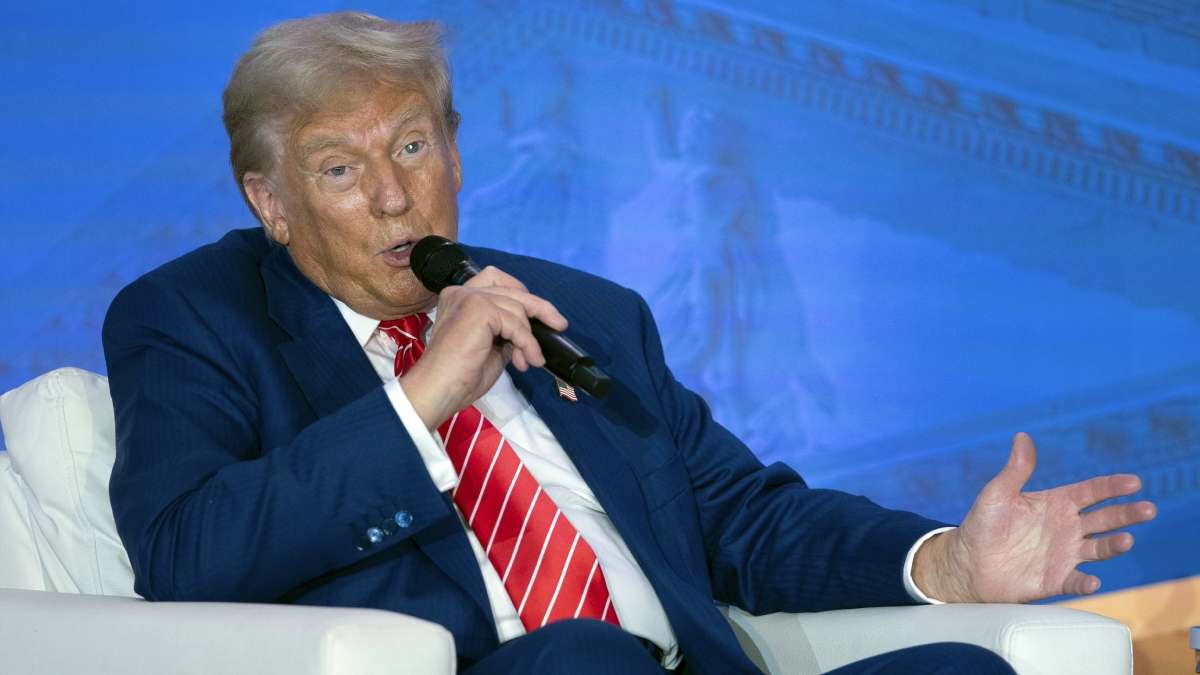
Washington: Former US National Security Adviser Lt Gen (retired) HR McMaster said in his latest book that there is an “undeniable complicity” of Pakistan’s Inter-Services Intelligence (ISI) with terrorist groups, adding that the White House faced resistance from the state department and Pentagon over providing security aid to Islamabad during his tenure under former President Donald Trump.
Giving a firsthand account of his tenure during the Donald Trump administration as the National Security Advisor, McMaster in his book “At War With Ourselves”, which hit the bookstores this Tuesday, said then-Defence Secretary Jim Mattis was planning to deliver a military aid package to Islamabad that included $150 million worth of armoured vehicles. That aid was stopped after McMaster’s intervention.
“It was difficult to get State and Defence even to comply with Trump’s directives to stop certain activities. I discovered that contrary to the South Asia strategy, which called for the suspension of all aid to Pakistan with a few exceptions, when Mattis visited Islamabad in the coming weeks, the Pentagon was going to deliver a military aid package that included more than $150 million worth of armoured vehicles,” wrote McMaster in his book.
‘Trump wanted to suspend aid for Pakistan’
The ex-NSA wrote that he called a meeting with Mattis, the deputy director of the Central Intelligence Agency, Gina Haspel, and other senior officials, where he noted that Trump had been very clear on multiple occasions to suspend aid to Pakistani until it halted support for terrorist organisations that were “killing Afghans, Americans, and coalition members in Afghanistan”.
“We had all heard Trump say, ‘I do not want any money going to Pakistan’,” he says. Mattis noted the possibility that Pakistan might retaliate in certain ways, but others, including US Ambassador to Islamabad David Hale did not share those concerns. Nevertheless, Mattis reluctantly halted the shipment of assistance but other aid continued.
As a result, Trump tweeted on New Year’s Day, “The United States has foolishly given Pakistan more than 33 billion dollars in aid over the last 15 years and they have given us nothing but lies & deceit thinking of our leaders as fools. They give safe haven to the terrorists we hunt in Afghanistan with little help. No more!”
Pakistan’s ‘insult’ to the US
McMaster further wrote that Pakistan did not change its behaviour and released UN-proscribed terrorist Hafiz Saeed, the mastermind behind the 26/11 terror attacks in Mumbai, as “almost an insult” to the United States. “Moreover, a recent event in Pakistan involving hostages had exposed the undeniable complicity of Pakistan’s Inter-Services Intelligence with the terrorists,” he writes.
He notes that news reports at that time criticised the president’s tweet as capricious and devoid of a coherent policy. However. halting assistance was a critical part of the South Asia strategy that Trump had approved at Camp David in August. “A lunch that the president hosted with the vice president, Tillerson, Mattis, Kelly, and me on December 14 helped me understand why it was difficult to implement Trump’s guidance on Pakistan or to foster cooperation on contingency plans for North Korea,” says McMaster.
India was more interested in China than nuclear-armed Pakistan: Ex-NSA
McMaster in his book gives a detailed account of his trip to Afghanistan, Pakistan and India from April 14–17, 2017, during which he met then-Foreign Secretary S Jaishankar, Doval and Prime Minister Narendra Modi in New Delhi.
The conversation was easy, as Doval, Jaishankar, “and I believed we had a tremendous opportunity to work together in pursuit of our mutual objectives”, McMaster writes about his meeting at the Janpath residence of Doval. Jaishankar then was the Foreign Secretary and the late Sushma Swaraj was the External Affairs Minister.
“We spoke about the war in Afghanistan and the threat to India from nuclear-armed Pakistan, but Jaishankar and Doval spoke mainly about an increasingly aggressive China. The two men were open to unprecedented cooperation thanks to Xi Jinping’s aggression. The deepening partnership between the world’s largest and the world’s oldest democracies seemed logical, but India is “fearful” both of entrapment into competitions from which it would prefer to abstain and abandonment based on the short American attention span and ambivalence over South Asia,” McMaster writes.
(with inputs from agency)
ALSO READ | Thanks to Chinese aggression, India willing to forge ‘unprecedented’ ties with US, claims Trump’s NSA